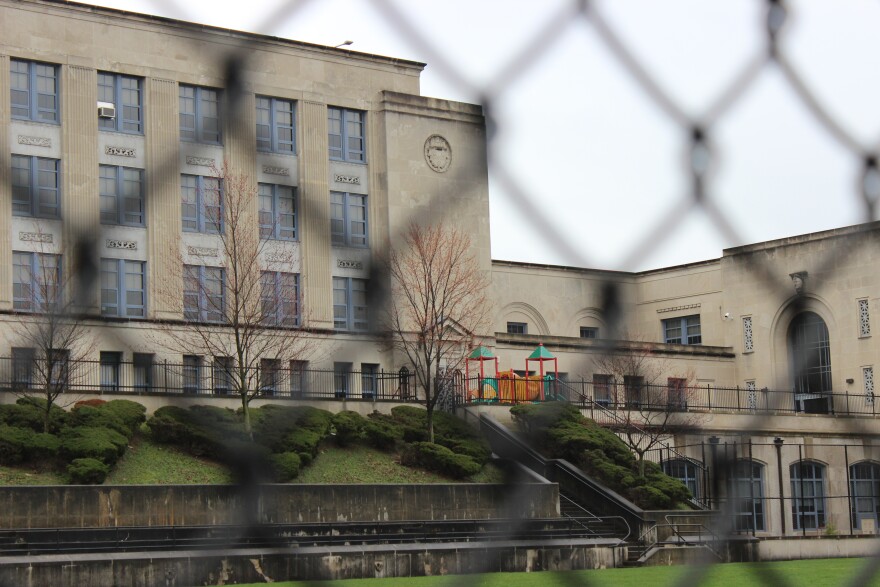Allegheny County school districts that transitioned to remote learning quickly, provided technology for all or some grades and performed real-time instruction, serve fewer historically marginalized students than those who didn't, according to a new report.
With funding from the Heinz Endowments, Philadelphia-based education research organization Research For Action examined continuity of education plans that districts and charter schools submitted to the state this spring after Gov. Tom Wolf ordered all schools to close on March 13.
“Overall we found that districts that provided these learning opportunities generally served lower rates of students with economic disadvantage and students of color than districts that did not,” said Mary Eddins a policy fellow with RFA based in Pittsburgh.
The data underscore the impact pandemic-related closures had on students of color and economically disadvantaged students.
Nationally, data suggest that racial and socioecomic achievement gaps will widen because of disparities like technology access. In Pennsylvania, schools are largely funded with local taxes, meaning they rely on the wealth of a community for resources.
“Nationally, students have also been receiving less instructional time during remote learning than in a typical school day, and most districts experienced a lag in starting remote learning after statewide school closures were announced,” the Research For Action brief states.
The trends detailed in the Allegheny County report is not news to advocates who have called out area districts for their slow move to remote learning and distribution of technology for students learning at home.
A newly-formed Pittsburgh group called Black Women for a Better Education is calling for Pittsburgh Public Schools to find a new superintendent once Anthony Hamlet’s contract expires at the end of next year. The group cited the district’s response to the shutdown inequitable and unsatisfactory.
A letter sent to the school board last month says that PPS students lost nearly three weeks of instruction, while neighboring districts with technology in place were able to begin almost immediately. The group criticized the district's decision to disable camers on the devices it distributed to students, saying the move made remote learning more difficult.
“This type of behavior furthers an already widening access and opportunity gap that persists in the district,” the letter from Black Women For A Better Education stated.
During the spring, the statewide Education Law Center and a coalition of more than 80 organizations, including groups that advocate for Pittsburgh-area schools, A+ Schools and One PA, wrote to the Gov. Wolf and Education Secretary Pedro Rivera with equity concerns.
“The COVID-19 crisis has underscored the deep disparities in educational resources between well-funded and underfunded school districts and the inequities in educational access available to the students within these districts,” the letter stated. “These stark disparities will further widen achievement gaps, undermine educational equity, and deprive hundreds of thousands of students of their right to an education.”
David Lapp, the director of policy research for Research for Action, said the organization hopes its work will be used to drive policy change. The researchers aren't advocates but they work to get information to those who are, he said.
“Students across the U.S. are expected to enter school in the fall with greater variability in skills, and research is already indicating learning loss will be greatest for low-income, Black and Hispanic students. In addition, low-income students are more likely to experience compounding issues caused by the COVID-19 pandemic, such as increased food insecurity and loss of family income,” the report states.
While the research brief only examined the plans the districts submitted and may not reflect what the districts did in practice, the brief states that the plans detail “critical information on how school entities endeavored to provide learning opportunities during mandated building closure.”
For example, only four out of the 56 total plans mentioned providing services to students experiencing homelessness or students in foster care, according to the brief.
Most districts stated in the plans that formal instruction would be online, which requires access to technology. However, before the closures only 41 percent of districts reported the availability of devices for all students in any grade level.
Districts that serve more than 44 percent of Allegheny County students indicated no formal instruction until at least April 1, according to the report.
While 70 percent of districts and charter schools said they would introduce new concepts, two districts – Steel Valley and Moon Area School Districts – reported that they would only review previously taught concepts.
“The plan for Steel Valley stated that “the introduction of new concepts may lead to frustration and stress for both the teacher and the learner. Solidifying the skills gained before the closure order on March 13 is extremely important,” according to the report.
One of the districts that planned to introduce new content, North Hills, stated that “the curriculum is still the roadmap for teaching and learning; however, the focus is on the most essential elements of the curriculum.”
According to the brief, that indicates that even districts that planned new content were introducing less than they otherwise would.




